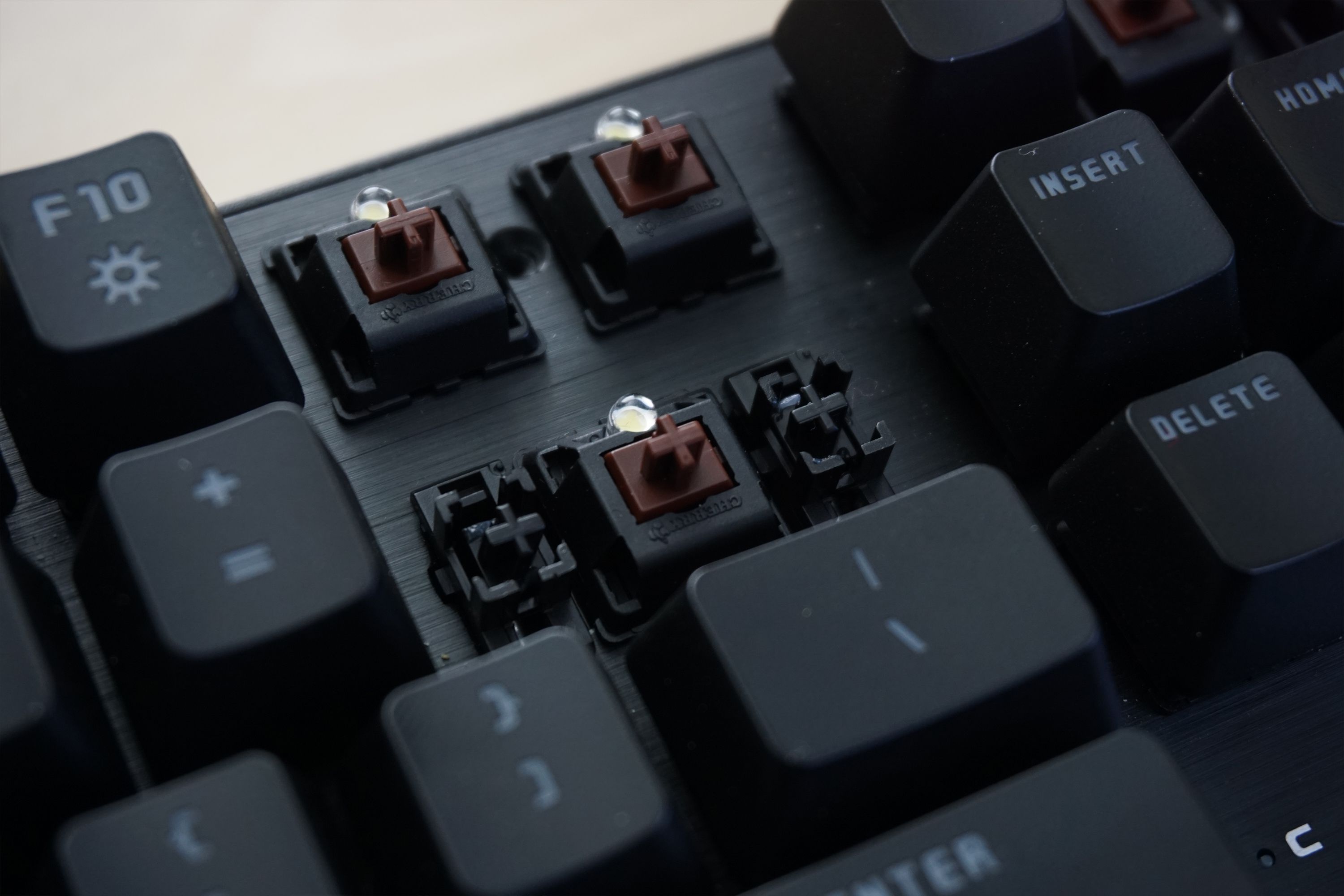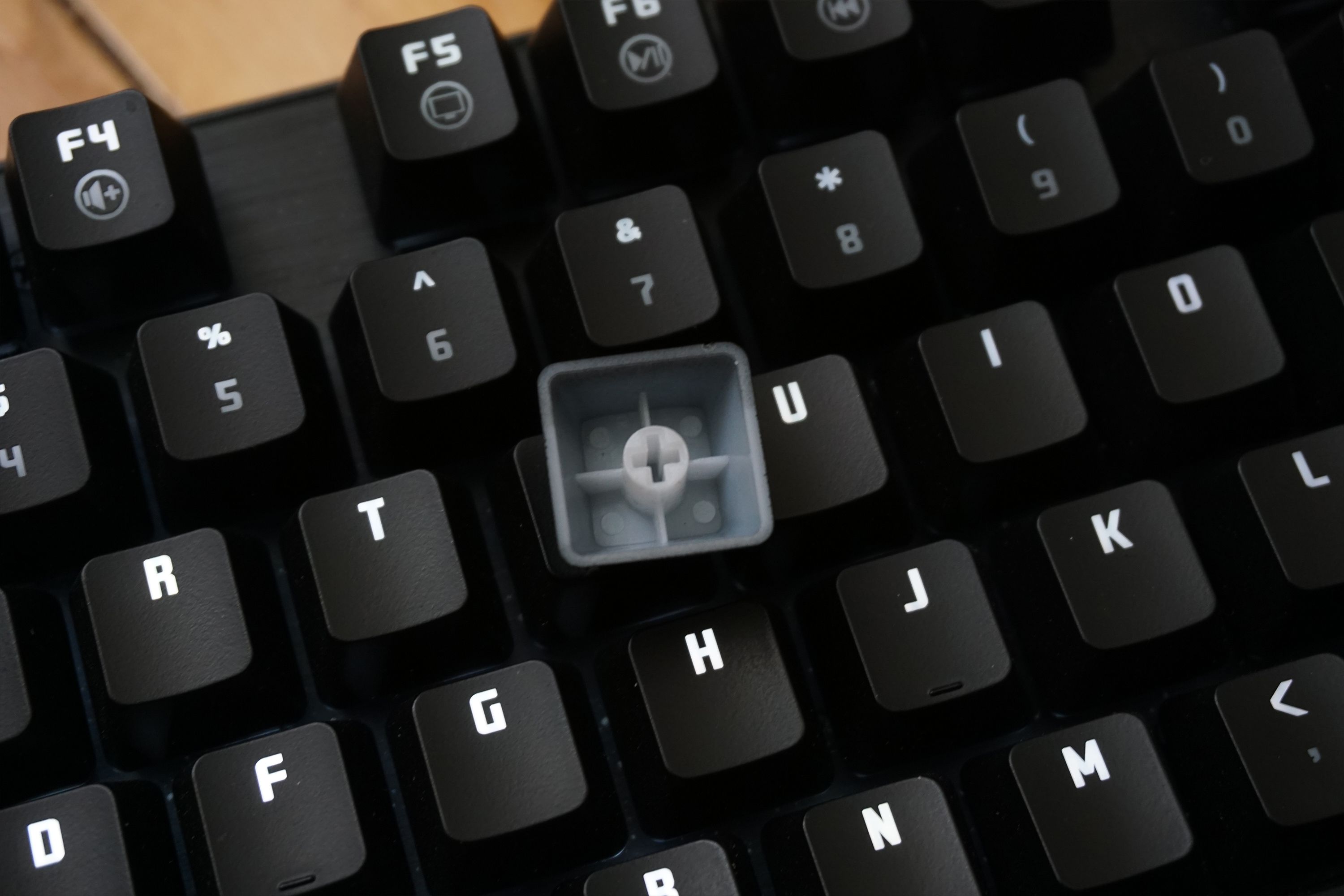Rantopad MXX Mechanical Keyboard Review
Why you can trust Tom's Hardware
Product Tour
Switches
One of the best things about the Rantopad MXX is the wide assortment of switch options. The board we received to test uses Cherry MX Brown switches, but you can get the same piece of hardware with Cherry MX Blue, Red, or Black switches.
There are also versions of the MXX with Gateron-branded switches, which are clones of Cherry. They come in the same "color" variants, but these boards are a bit cheaper. That does not mean the switches are inferior, though; Gateron's switches have won praise for smooth operation and reliability that’s equal to Cherry.
Keycaps
This keyboard comes with laser-etched ABS keycaps, similar to what you get on most mainstream mechanical keyboards. They have shine-through legends so you can see them in the dark. The black ABS is somewhat thin, at 1mm, but that's also what you get on more expensive boards from Corsair, Logitech, and others. High-end custom sets might be double or triple the thickness. The keycaps are thick enough that they won't warp or flex, but they do have a hollow sound.
ABS caps develop “shine” over the course of a year or two, and laser-etched legends tend to pick up dirt and oil. An occasional cleaning can help prevent that, but cheap keycaps will never look all that pretty after a couple of years of use. We are happy, though, to see that the keycap font is understated and not one of the edgy, borderline-illegible "gamer" fonts you see on so many keyboards now.
Unlike the Das Keyboard Prime 13, Rantopad hasn't gone to the extra effort of aligning the LEDs and legends correctly. All the in-switch LEDs are north-facing (they're at the top of the switch). That means the light shines straight up through the legend closer to the top of the keycap. Thus, you get brightly illuminated secondary characters like @, %, and $, while the "main" character is dim.
Rantopad opted to use plate-mounted Cherry stabilizers for the wider keycaps. These are less finicky than Costar stabilizers, but they can be louder when low-quality parts are used. Several stabilized keys on our board were a bit loud and rattly. Still, if you decide to swap the mediocre keycaps, you'll be happy this board uses Cherry stabilizers.
Get Tom's Hardware's best news and in-depth reviews, straight to your inbox.
MORE: Best Deals
MORE: How We Test Mechanical Keyboards
MORE: Mechanical Keyboard Switch Testing Explained
MORE: All Keyboard Content

